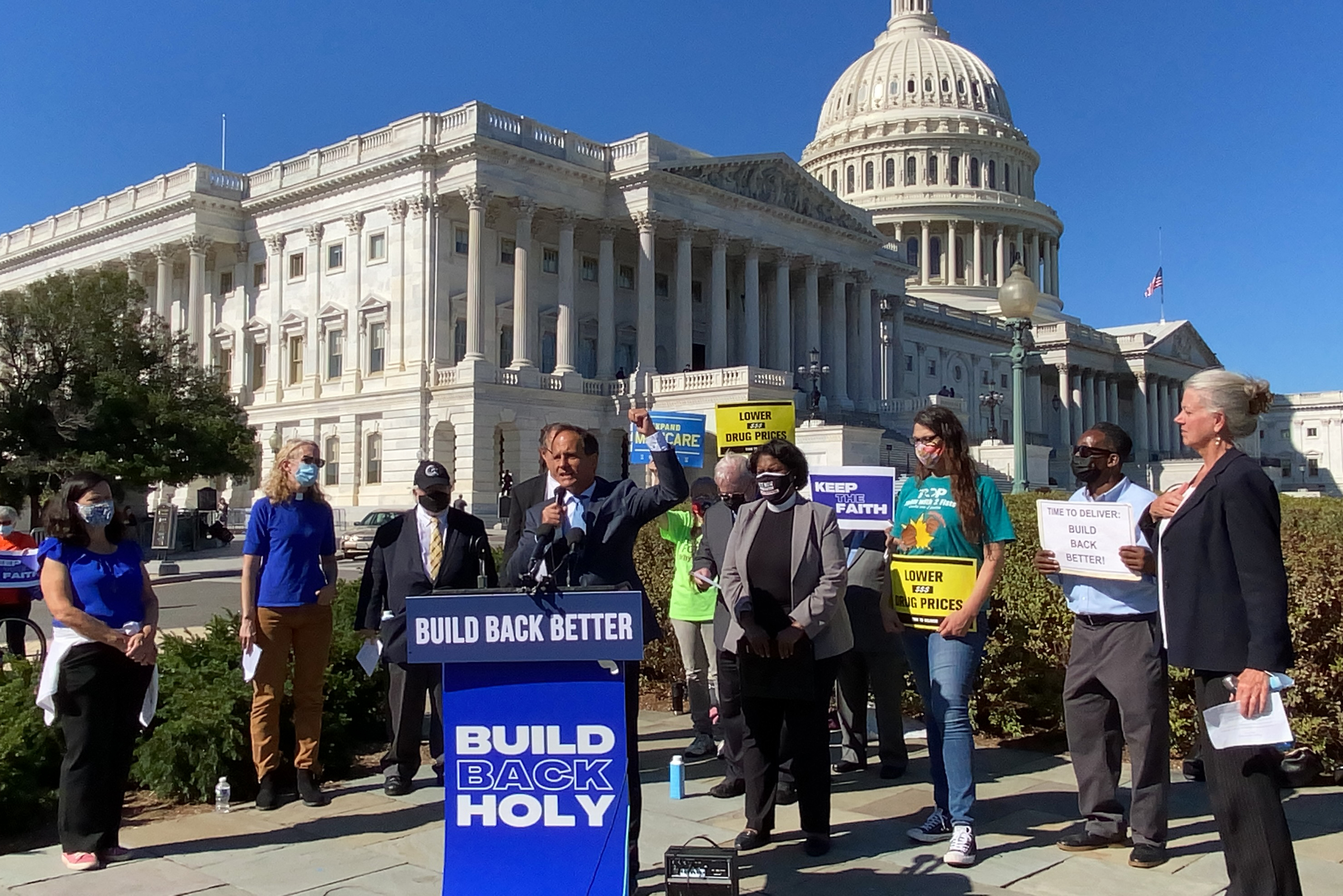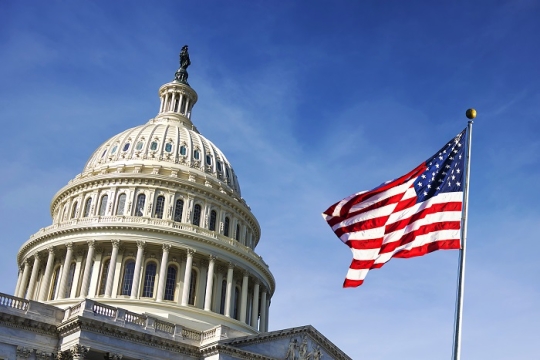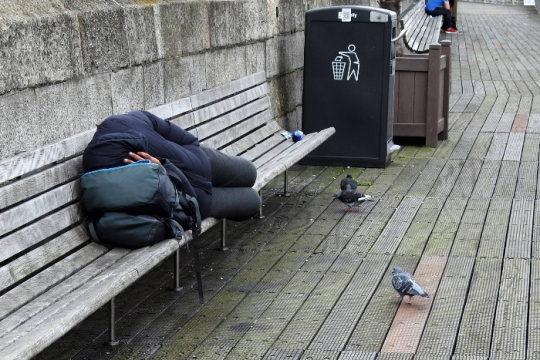
After 12 hours of storytelling and prayer at the Washington Interfaith Staff Community's Build Back Better Prayer Vigil outside the U.S. Capitol on October 20, it was clear: bold investments in our economic recovery are crucial to the livelihood of workers, children, and families in the US. To rebuild the American economy and address the structural inequities that long preceded the pandemic, Congress must pass a robust Build Back Better Act.
As Rabbi Jonah Dov Pesner said during a press conference with national faith leaders and members of Congress, including House of Representatives Speaker Nancy Pelosi, the COVID-19 pandemic has exposed and exacerbated deep-rooted economic and racial injustices in American society. Years of underinvestment in housing, health care, childcare, and other aspects of the social safety net laid a shaky foundation for the country's pandemic response, intensifying its impact on marginalized communities, including communities of color. The Build Back Better Act is a once-in-a-generation opportunity to meet the scale of the economic crisis and create lasting change for future generations by investing in the environment, health care, housing, anti-hunger initiatives, paid family and medical leave, the Child Tax Credit, and public childcare.
The Build Back Better plan includes three priorities - paid leave, permanent expansion of the child tax credit, and investments in childcare and universal pre-K - that would support working families and create more economic security for the most vulnerable.
Paid leave is key to our health, recovery, and stability. The U.S. currently remains the only high-income country that doesn't guarantee paid leave, and only 23 percent of Americans have access to paid family leave through their jobs, leaving 88 million workers without paid leave to care for a loved one. Moreover, during the pandemic, the Black and Latino workers who are less likely to have access to paid leave were also most likely to need time off work due to COVID-19 symptoms, exposure, or relative caregiving. No one should have to choose between caring for themselves or their family or their job.
Paid leave provides employees the necessary time to recover after illness or surgery, to take care of an ill family member, or to care for a newborn infant or adopted child. Providing new parents with paid time off contributes to children's healthy development, supports parental equity in caregiving, and enhances families' economic security. There are many societal benefits that come with providing paid leave including improved health outcomes, increased workforce retention, and increased labor force participation. A permanent, universal paid leave program would also lessen the racial and economic inequities exacerbated by the pandemic.
Working families continue to struggle to find affordable and consistent childcare. Low-income working families spend more than one-third of their income on child care, and more than 34 percent of families with young children are facing serious problems finding child care when adults need to work. Investments in childcare and universal pre-K, as proposed in the bill, would help alleviate additional costs to childcare providers and parents, allowing parents and guardians to return to work.
As part of the bill, Congress has the opportunity to permanently expand the Child Tax Credit (CTC), which is a tax credit given to families with children to help pay for necessities and make it fully refundable and available to all low-income families. The CTC is proven to work: in August, the Child Tax Credit kept an estimated 3.5 million children from poverty. However, many families remain economically insecure, with 38 percent of households reporting serious financial trouble in the past few months, including more than 50 percent of Latinx, Black, and Native American households. As Speaker Pelosi and Representative Rosa DeLauro (CT-03) echoed at the vigil, the government has a "moral obligation" to permanently expand the CTC and keep children, especially children of color, out of poverty.
In this time of grave economic crisis, we are commanded, "do not harden your heart and shut your hand against your kin." Rather, we must open our hand and lend whatever is sufficient (Deuteronomy 15:7-8). In fact, the great sage and Torah scholar Rashi instructed us to uplift our neighbors in times of need and "strengthen [them] as [they] begin to fall," preventing them from slipping into poverty in the first place. These words inspire our commitment to supporting the millions of families struggling to put food on the table, keep a roof over their heads, manage medical expenses, care for family members, or enjoy equitable access to education that allows people to fulfill their potential.
These are just a few pieces of a much longer, urgently needed list of provisions in the bill. With the Build Back Better Act, Congress can improve the lives of millions of children and families, and in turn, usher in a new era of economic growth that benefits everyone. With negotiations underway, now is the time to urge Congress to address systemic inequities, cut child poverty, and enable all workers and families to live with greater security and dignity. Take action.
Related Posts

Honoring the 1 Million Lives Lost to COVID-19 in the United States

Looking Back and Looking Forward: Legislative and Executive priorities for 2022


